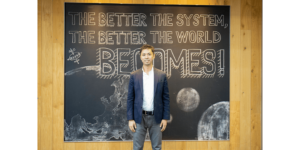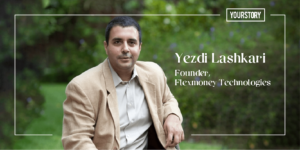
In his famous commencement address in 1974 at the California Institute of Technology, physicist Richard Feynman gave an engaging talk about the concept of integrity for science.
“If you’re doing an experiment, you should report everything that you think might make it invalid—not only what you think is right about it. Other causes that could possibly explain your results, and things you thought of that you’ve eliminated by some other experiment and how they worked—to make sure the other fellow can tell they have been eliminated…”
“In summary, the idea is to try to give all the information to help others to judge the value of your contribution; not just the information that leads to judgment in one particular direction or another.”
Feynman advises that in scientific research, people sometimes lean toward a certain outcome and try to justify that outcome by any means necessary. Yet, he proposes that every interaction—regardless with whom—is an opportunity to approach a more complete understanding of the world.
We must enter these conversations with a single-minded devotion to answering a question, solving a problem, and seeking the truth. However, it demands utter intellectual humility, so one can be open and receptive to ideas, perhaps at odds with preconceived beliefs.
.thumbnailWrapper
width:6.62rem !important;
.alsoReadTitleImage
min-width: 81px !important;
min-height: 81px !important;
.alsoReadMainTitleText
font-size: 14px !important;
line-height: 20px !important;
.alsoReadHeadText
font-size: 24px !important;
line-height: 20px !important;

This begins with the art of active listening.
To listen—to truly hear another—you must first quiet the noise within your mind, constantly colouring your perception of the other. This way, you’re not filtering their opinion through your lens of expectations and stereotypes. Instead, you act as a blank slate, entirely open to take what is said as it is.
It is an act of profound empathy, allowing you to absorb the other opinion as though it were yours, and then fully process your thoughts around it. This challenges you to resist the impulse to interject every time there’s silence, and it is a powerful way to signal you’re really listening to the speaker.
Yet, this can often be challenging for so many of us. The human brain—thanks to our evolution—has been hardwired to evaluate input, predict outcomes, and make judgments on a swift, real-time basis—all of which run counter to active listening.
Hence, active empathetic listening requires us to override our brain’s innate programming.
And yet, this skill is a key predictor of any individual’s success across personal, academic, and professional realms. Throughout all of human interaction, building trust with others is the best way to strengthen your relationships and a bond that leads to further collaboration and cooperation.
When someone feels that they’re listened to, their brain produces the “social bonding” hormone oxytocin—a feel-good hormone that brings them closer to the speaker.
.thumbnailWrapper
width:6.62rem !important;
.alsoReadTitleImage
min-width: 81px !important;
min-height: 81px !important;
.alsoReadMainTitleText
font-size: 14px !important;
line-height: 20px !important;
.alsoReadHeadText
font-size: 24px !important;
line-height: 20px !important;

Leveraging this neurochemical cascade can serve myriad functions in advancing your growth. For example, in an academic setting, if you are an attentive listener, you are uniquely equipped to expand your field of view and embrace novel perspectives you may never have seen before. It also enables others to be more receptive to your opinions.
Moreover, in the professional world, creating bonds built on trust with your colleagues and superiors positions you to seamlessly resolve conflicts, avoid miscommunication, constructively problem-solve, and overall foster a positive atmosphere for everyone.
It can enable you to succeed and thrive at work and likely be promoted to management and leadership roles, which demand strong people skills and empathy.
Whether in business negotiations, legal proceedings, or diplomatic discourse, you will be best served by opening the floor to first allow the other to be heard, as opposed to showing up and demanding what you want.
Cultivating the art of active listening is a lifelong journey of continual refinement and humility. However, you can employ a variety of techniques to ensure you grow as a listener.
For starters, you must reserve your preconceived judgments and replace them with curiosity. As an effective listener, you must allow the other to speak without unsolicited information or interjections. It shows you are capable of hearing another out without having to share your advice.
Moreover, as another person is speaking, you can provide positive verbal or non-verbal reinforcement like nodding and strong eye contact to demonstrate that they have your full attention.
Finally, after they are done speaking, you can ask simple, salient questions that distil the root of the individual’s claims, and then restate your takeaway to clarify that you’ve understood.
Throughout, you must practice radical empathy, placing yourself in the speaker’s shoes to better identify not only their perspective but also the emotions underpinning them.
According to Satya Nadella, CEO of Microsoft, “Anything is possible for a company when its culture is about listening, learning, and harnessing individual passions and talents to the company’s mission.”
Top executives at some of the world’s most successful companies have shared their value of empathic listening in approaching a better truth and a happier, more positive environment.
Truly empathetic listening requires courage—the willingness to release old ways of thinking and embrace new ones. But change is imperative. If going against our brains’ hardwiring means creating a world where people feel heard, then it’s a path worth taking.
Evolution is a never-ending process that requires us to keep pushing our limits. Most importantly, we can choose the kind of evolution we want to go through (perhaps the only species capable of that). Once acquired, these listening habits can transform followers into leaders.
Rahul Subramaniam is the Co-founder and Managing Director of Athena Education.
Edited by Suman Singh
(Disclaimer: The views and opinions expressed in this article are those of the author and do not necessarily reflect the views of YourStory.)










